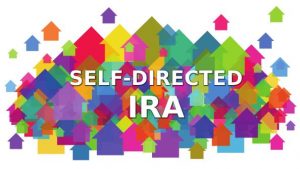Invest for Success!
By Dr. Albert Lowry
You no doubt want to be a successful investor, but you need to know how to move beyond the wishing stage. I have some tips to help you get started and learn what to do to keep yourself on the right path. We’ll take a step-by-step look at how you too can go from just a dream of being a real estate entrepreneur, to having your own real estate portfolio that is your key to financial freedom for life.
First, you must set goals. Don’t just think about them, but instead put them in writing. The act of writing has the effect of making your goals more real and getting them into the subconscious part of your brain, so that they are always there in the background, motivating you.
Another important point to understand to prepare yourself for success, is that risks and sacrifices are involved. You already know that just about anything that has big potential rewards means that you need to push yourself out of your comfort zone, and this is no different.
Simply put, if you don’t make the effort, you won’t experience the reward. Here’s the level of effort that I suggest: at least one hour per day devoted to studying real estate investing concepts and their real-world applications.

On weekends especially, you have the opportunity to explore the real estate market in your own area by touring neighborhoods, looking at houses, networking with people, and building up a base of knowledge about prices, amenities, desirable areas, and more. You’ll sacrifice the time that you would have spent napping or watching TV, but the potential payoff is long-term financial independence for yourself and your family.
As I mentioned, there is risk involved. Any investment that can make money for you can also lose money. That’s a fact of life, but there are ways to tip the balance sharply in your favor. You can protect yourself by ensuring that contracts are written to your advantage, by paying attention to both what is in a contract, and also what’s not. It is imperative that you read and understand everything that is contained in the contract, including all clauses, and also foresee any contingencies that are not mentioned. You may even choose to have a real estate attorney to help you review property contracts to be sure that there are no “gotchas.”
Now, I promised that I would provide you with step-by-step instructions to Invest for Success. This is a quick thumbnail sketch of the 7 steps involved in the process and important points to know. You’ll tailor a plan for yourself, but this will give you a good start.

- Develop a simple plan. Keep your real estate portfolios local and plan to focus on single family homes at the beginning.
- Learn your market. We touched on this earlier because it’s important to know prevailing costs per square foot, develop the capability to assess quality, and have a good working knowledge of which amenities are desired in your area. That will give you the ability to spot bargains. Using a mentor who has succeeded in real estate investing can help you fast-track this process.
- Think like a businessperson. Like any business, you will want to buy at wholesale and sell at retail. You’ll make businesslike assessments of each property to determine whether it should be held for rental income or sold for resale profit.
- Learn to identify hidden bargains and act quickly. Acting quickly does not mean acting impulsively, though. You still will carefully structure your contracts with contingencies and the option to assign the contract, which will protect your interests and profit potential. If your plan is to flip, be sure beforehand that no “major surgery” on the property is required. Any improvements you plan to make should be visibly beneficial and have the potential of raising the rental price or the resale value.
- Learn landlording. Even if you plan to turn the task over to a professional management company, you still need to know the fundamentals of how to manage properties and tenants. Otherwise, how will you know whether a management company is doing a good job for you, or not?
- Establish trade accounts with companies such as building supply stores. This will enable you to save money, get into the loop with local tradespersons and other real estate professionals, and build your line of credit. It will also help you establish good bookkeeping, which gives you a sound basis for business decisions on your properties. I suggest keeping a daily log for your expenses. You’ll be glad you did when you’re doing your recording keeping, and at tax time.
- Borrow money for your investments. You can use banks, 50/50 partners, or private individuals. When you use seller-assisted financing, creative financing terms are often possible, such as shared future appreciation on the property or no-money-down deals.

In summary, decide what you’d like to do, and ensure that you have the proper knowledge and formula for success to make it happen. Remember that nothing at all happens for you unless you take action, so why not get started on your dream today?
Your partner in prosperity,
Dr. Albert Lowry






